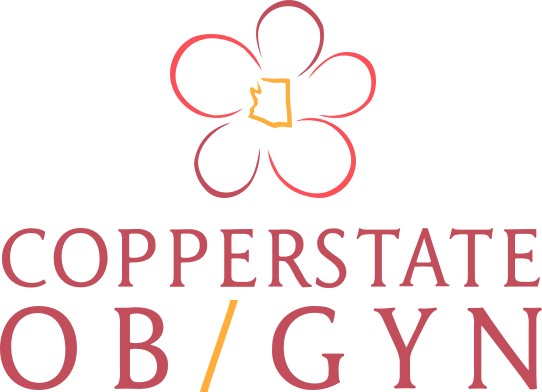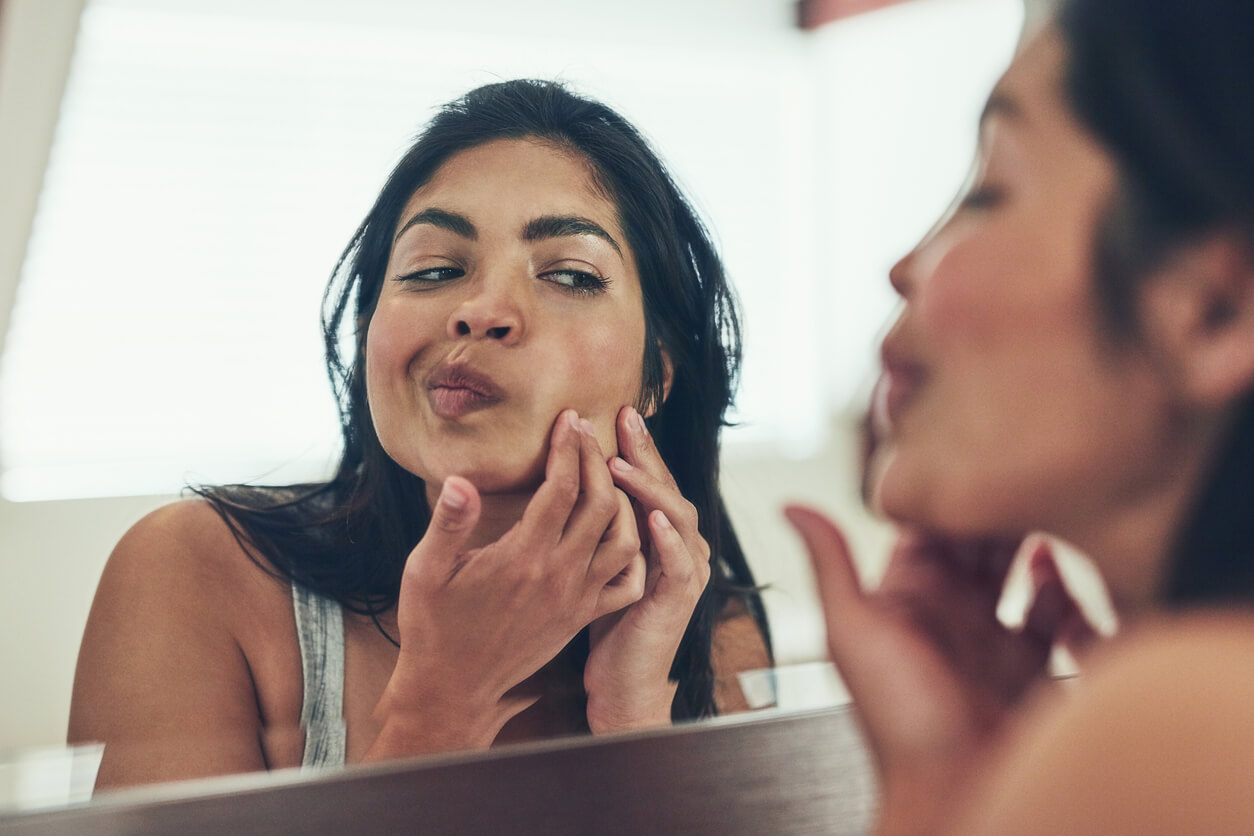Acne can be incredibly frustrating, embarrassing at times, and even painful.
Hormonal acne can be particularly severe and stubborn so it’s important to understand its causes, and how you can properly treat and prevent it.
Luckily, this is where the experts at Copperstate can help! We’ve created a guide with everything you need to know about hormonal acne, also known as adult acne.
What Is Hormonal Acne
Hormonal acne is a type of acne that occurs as a result of hormonal fluctuations in the body. It typically appears on the lower face, chin, and jawline, and is most common in women, especially during puberty, menstruation, pregnancy, and menopause.
Hormonal acne can appear in different forms including:
- Whiteheads
- Blackheads
- Papules (raised skin tissue)
- Pustules (skin bumps that contain pus)
- Cysts (pockets under the skin that contain fluid)
Causes of Hormonal Acne
The most obvious cause of hormonal acne is fluctuations in hormones, particularly androgens like testosterone, which can cause the skin’s oil glands to produce more sebum. However, hormonal acne can also be genetic, meaning that if your parents or other blood-related family members struggle with adult acne, you may be predisposed to it.
While less common, certain medications like steroids, lithium, and anticonvulsants can also cause periods of hormonal acne.
Preventing Hormonal Acne
Since hormonal acne is caused by factors within your body, it can be difficult to prevent using external measures. However, there are steps you can take towards prevention including:
- Avoiding touching your face: Touching your face can transfer bacteria and oils from your hands to your face, which can contribute to hormonal acne.
- Maintaining good hygiene: Wash your face twice a day with a gentle cleanser and avoid using harsh scrubbing motions that can irritate your skin.
- Using non-comedogenic products: Use non-comedogenic products that are oil-free and won’t clog your pores.
- Staying hydrated: Staying well-hydrated can also improve your immune system, supporting your body in fighting off infections — which can help prevent acne.
- Managing stress: Stress can trigger hormonal acne, so practicing stress management techniques like meditation, deep breathing, or yoga can help prevent it.
Treating Hormonal Acne
When it comes to treating hormonal acne, the first thing to consider is of course, your hormones. Having your hormone levels tested to detect any possible imbalances can be a great place to start.
Many women also find success with utilizing contraceptives such as the birth control pill to maintain stable hormonal levels that then prevent and treat hormonal acne.
Other treatments for acne include:
- Topical medications: Prescription-strength topical medications that contain benzoyl peroxide, retinoids, or antibiotics can help treat hormonal acne.
- Oral medications: This includes medications like birth control pills, spironolactone, and isotretinoin.
- Lifestyle changes: Adopting healthy habits such as a balanced diet, regular exercise, and stress management techniques like meditation and yoga can help improve existing hormonal acne.
Copperstate and Hormonal Acne
No matter your age, if you are experiencing hormonal acne, Copperstate is here for you!
Our practice is recognized as one of the most progressive OB/Gyn groups in Tucson, Arizona. Our expert physicians offer a number of services focused on helping you feel your best, including hormone therapy, contraceptive counseling, and more.
Are you a patient of Copperstate OB/Gyn? Access your patient portal here, or share your experience with us on Google!
Sources
https://my.clevelandclinic.org/health/diseases/21792-hormonal-acne
https://my.clevelandclinic.org/health/diseases/21792-hormonal-acne

